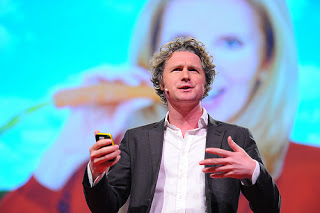Philosophy
 It's hard to understate the number of misleading health reports and health advice out there. First there's the problem of alternative-medicine quacks (visit the Enemies of Reason tag to learn more about them); then there are also problems with misleading journalistic reports that confuse some shallow correlation with a causal connection; then we have pharmaceutical companies who publish only results favorable to their products while keeping those that aren't as confidential under legal technicalities like trade secrets; then we have scientists who don't always conduct sufficiently rigorous studies and experiments; etc.
It's hard to understate the number of misleading health reports and health advice out there. First there's the problem of alternative-medicine quacks (visit the Enemies of Reason tag to learn more about them); then there are also problems with misleading journalistic reports that confuse some shallow correlation with a causal connection; then we have pharmaceutical companies who publish only results favorable to their products while keeping those that aren't as confidential under legal technicalities like trade secrets; then we have scientists who don't always conduct sufficiently rigorous studies and experiments; etc.
Thankfully, there are people like Ben Goldacre, who in this TEDTalk presentation exposes some of the ways in which industries and journalists can distort evidence and statistics to get you to buy their products, or to scare you from buying products from their competitors, or just to sell more copies of their journals and keep their ratings going, etc.
And you can't miss Ben Goldacre's awesome rant on the placebo and nocebo effects.
- How Do We Protect Ourselves From The Corporate Corruption Of Science?
I've been reading David Michaels' book Doubt is Their Product: How Industry's Assault on Science Threatens Your Health. Truly a must read. As an insider, he chronicles the ways in which corporations are not only undermining the public's...
- Placebos And Autonomy
A new study finds that about half of American doctors prescribe placebos for their patients. In order for the placebo effect to work, the patient must believe that the prescribed treatment is generally effective, something the doctor knows to be false....
- Ben Goldacre - What Doctors Don't Know About The Drugs They Prescribe
Richard Feynman once defined science as that which we do to avoid fooling ourselves. We humans are universally prone to the cognitive bias known as selection (or confirmation) bias: instead of looking at the big picture, hits and misses alike, we have...
- Ben Goldacre - The Placebo And Nocebo Effects
You're probably familiar with the concept of the placebo effect: you pretend to provide some sort of treatment to a patient (sugar pill, saline shot, shaman chicken dance, homeopathic elixir, etc.), and because there is no actual medicine or treatment,...
- The Fine Art Of Critiquing An Academic Paper
"Researchers don't mean to exaggerate, but lots of things can distort findings" It's possible people are not bothering to report a negative result alongside positive ones they found by Ben Goldacre August 12th, 2011 guardian.co.uk ...
Philosophy
Ben Goldacre - Battling Bad Science

Thankfully, there are people like Ben Goldacre, who in this TEDTalk presentation exposes some of the ways in which industries and journalists can distort evidence and statistics to get you to buy their products, or to scare you from buying products from their competitors, or just to sell more copies of their journals and keep their ratings going, etc.
And you can't miss Ben Goldacre's awesome rant on the placebo and nocebo effects.
- How Do We Protect Ourselves From The Corporate Corruption Of Science?
I've been reading David Michaels' book Doubt is Their Product: How Industry's Assault on Science Threatens Your Health. Truly a must read. As an insider, he chronicles the ways in which corporations are not only undermining the public's...
- Placebos And Autonomy
A new study finds that about half of American doctors prescribe placebos for their patients. In order for the placebo effect to work, the patient must believe that the prescribed treatment is generally effective, something the doctor knows to be false....
- Ben Goldacre - What Doctors Don't Know About The Drugs They Prescribe
Richard Feynman once defined science as that which we do to avoid fooling ourselves. We humans are universally prone to the cognitive bias known as selection (or confirmation) bias: instead of looking at the big picture, hits and misses alike, we have...
- Ben Goldacre - The Placebo And Nocebo Effects
You're probably familiar with the concept of the placebo effect: you pretend to provide some sort of treatment to a patient (sugar pill, saline shot, shaman chicken dance, homeopathic elixir, etc.), and because there is no actual medicine or treatment,...
- The Fine Art Of Critiquing An Academic Paper
"Researchers don't mean to exaggerate, but lots of things can distort findings" It's possible people are not bothering to report a negative result alongside positive ones they found by Ben Goldacre August 12th, 2011 guardian.co.uk ...
